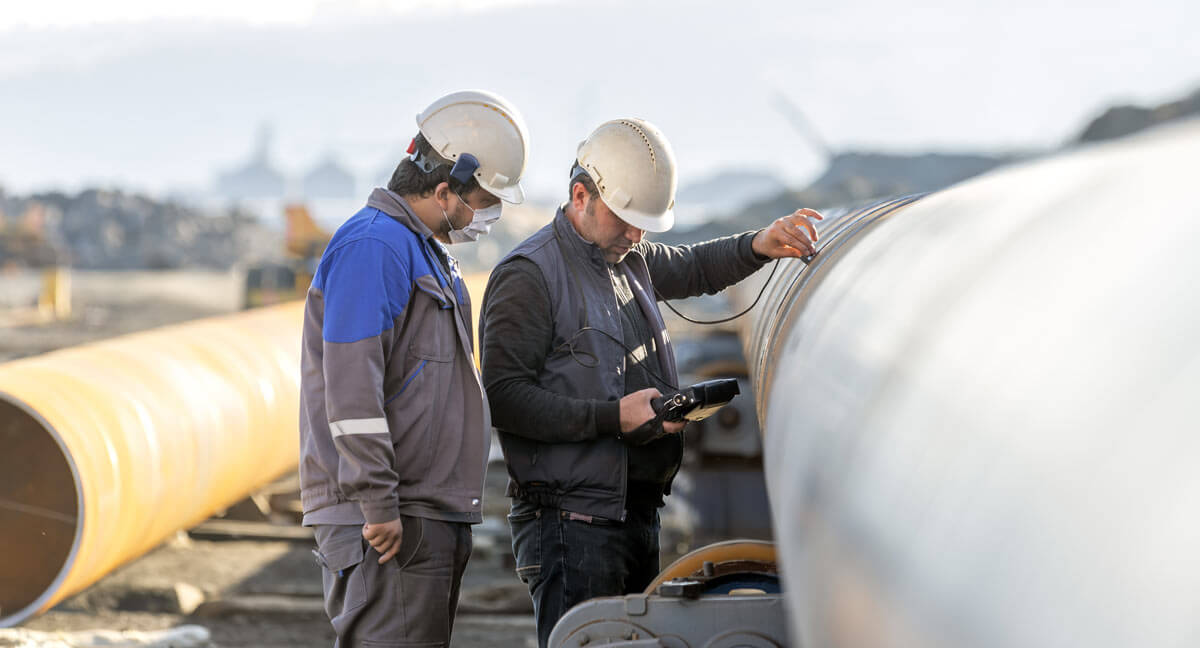The Influence of Extensive Welding Evaluation on Industry Specifications: Encouraging Safety, Integrity, and Conformity Across Numerous Industries
The function of extensive welding examination is increasingly acknowledged as a vital component in improving market criteria, where safety, dependability, and compliance take precedence throughout diverse markets. What improvements might we prepare for in welding approaches as the need for top quality and safety magnifies?
Relevance of Welding Inspections
Recognizing the critical role of welding examinations in maintaining top quality and security standards, sector experts focus on these examinations to make sure architectural integrity. Welding inspections work as a vital checkpoint in the manufacture process, identifying issues that can jeopardize the toughness and safety and security of bonded frameworks. By systematically evaluating welds, examiners can spot issues such as insufficient infiltration, porosity, and cracks, which may not be noticeable to the naked eye.
The importance of these evaluations extends past plain conformity; they are important for securing lives and safeguarding investments. In vital industries such as manufacturing, aerospace, and building, a single defective weld can bring about devastating failures, leading to both monetary loss and human casualties. Applying rigorous inspection procedures mitigates these risks and enhances total job integrity.
Furthermore, regular welding inspections foster a society of high quality throughout organizations, encouraging welders to stick to finest methods and preserve high standards in their job. This dedication to high quality not just boosts functional performance yet also reinforces the track record of firms within their particular markets. Therefore, welding examinations are vital in advertising safety, dependability, and conformity throughout numerous industries.
Trick Industry Requirements and Regulations
The framework of welding inspections is underpinned by a robust collection of market requirements and guidelines that regulate techniques throughout numerous markets. Secret institutions, such as the American Welding Culture (AWS) and the International Company for Standardization (ISO), develop standards that ensure high quality and safety and security in welding operations. For example, AWS D1.1 lays out essential needs for welding steel frameworks, while ISO 3834 specifies top quality needs for combination welding.
In enhancement to these particular criteria, industry laws like the American National Specification Institute (ANSI) and Occupational Security and Health Management (OSHA) mandates further enhance compliance by establishing safety and security protocols and operational ideal methods. These policies are critical in markets such as aerospace, production, and building and construction, where welding stability is paramount.
Moreover, sector-specific standards, such as those from the American Culture of Mechanical Engineers (ASME) for pressure vessels, give added layers of examination to make certain that welds fulfill stringent safety and performance criteria. Adherence to these standards not only helps with governing compliance yet additionally cultivates a society of top quality and reliability throughout the welding market, ultimately safeguarding public well-being and boosting functional effectiveness.

Advantages of Compliance and Reliability
Consistently sticking to industry criteria and laws in welding assessments returns substantial benefits, improving overall dependability and efficiency. The leading advantage is the guarantee of high quality in welded joints, which directly contributes to the security of structures and tools. Conformity with well-known standards minimizes the threat of failing and catastrophic events, thus securing both human life and valuable possessions.
In addition, organizations that focus on extensive welding assessments cultivate a society of accountability and professionalism. This commitment not only boosts the online reputation of the firm but likewise infuses self-confidence in customers and stakeholders concerning the stability of services and products. Trustworthy welding procedures cause reduced costs connected with rework, repair services, and possible legal obligations visit this page coming from below average handiwork.
Furthermore, keeping conformity with industry criteria facilitates smoother regulative interactions, as companies can easily demonstrate adherence to necessary procedures (Welding Inspection Gilbert Arizona). This positive strategy can result in advantageous partnerships and chances within the industry, in addition to accessibility to new her comment is here markets
Obstacles in Welding Examination
Browsing the complexities of welding inspection provides a myriad of obstacles that can hinder compliance with sector standards. The absence of standard training for assessors can result in varied interpretations of examination requirements, which might jeopardize safety and security and dependability.
One more obstacle lies in the ease of access of innovative inspection tools - Welding Inspection Gilbert Arizona. While technologies such as ultrasonic testing and radiography can boost discovery capabilities, their implementation may be restricted by price or schedule, particularly in smaller operations. This difference can cause a dependence on less effective evaluation approaches, enhancing the risk of unnoticed flaws
Furthermore, the fast-paced nature of contemporary production usually stress assessors to focus on speed over thoroughness, potentially forgeting critical issues. Regulative compliance can be discouraging due to the developing nature of industry requirements, leaving organizations having a hard time to maintain up with the most recent requirements. These challenges require continuous enhancement in inspection practices to guarantee the honesty of welded frameworks across various fields.
Future Trends in Welding Practices
Emerging modern technologies and advancing methods are set to change welding methods in the coming years. Developments in automation, such as robotic welding systems, are acquiring traction, enhancing precision and efficiency while decreasing human error. These systems will not just quicken manufacturing yet also promote constant quality assurance, addressing some of the challenges dealt with in hands-on welding.
Additionally, the combination of expert system (AI) and maker discovering into welding processes is positioned to revolutionize inspection and tracking. Real-time information analytics will allow predictive upkeep, enabling proactive interventions that lower downtime and rise security. Additionally, increased truth (AR) and online fact (VIRTUAL REALITY) innovations are ending up being critical in training welders, supplying immersive experiences that improve ability advancement without the risks related to conventional methods.
Sustainability is additionally a vital fad, as industries seek greener methods. The fostering of environmentally friendly products and techniques, together with energy-efficient machinery, will likely come to be standard. As markets adapt to these adjustments, the emphasis will certainly shift towards better conformity with security and ecological laws, ensuring that welding practices not just fulfill existing criteria however also lead the way for a more secure and even more sustainable future.

Conclusion
In verdict, rigorous welding inspections substantially boost market standards by making certain security, dependability, and compliance across different sectors. As industries continue to prioritize operational integrity, the importance of find out here detailed assessments will only raise, inevitably benefiting organizations and culture at big.
The function of extensive welding evaluation is progressively identified as a crucial element in enhancing sector criteria, where reliability, safety, and conformity take precedence throughout varied fields. Therefore, welding evaluations are important in advertising security, integrity, and compliance throughout numerous sectors.
Trick organizations, such as the American Welding Society (AWS) and the International Organization for Standardization (ISO), develop guidelines that ensure high quality and security in welding operations. AWS D1.1 outlines necessary demands for welding steel frameworks, while ISO 3834 specifies top quality needs for fusion welding.
In conclusion, strenuous welding assessments considerably improve industry standards by making sure safety, reliability, and conformity throughout various industries.